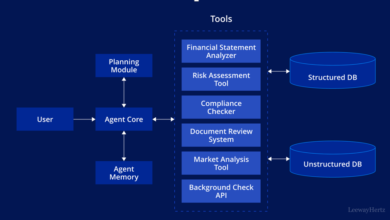Building Business Resilience in a Fast-Changing World

The business world today is moving faster than ever. Technology, consumer expectations, and global events can shift overnight, leaving companies vulnerable. In this environment, resilience has become one of the most important qualities for long-term success.
Business resilience is the ability to adapt, recover, and grow in the face of challenges. It’s not about avoiding change but thriving in it.
Why Business Resilience Matters
- Uncertainty is Normal – From economic downturns to supply chain issues, disruptions are constant.
- Customer Trust – Resilient businesses inspire confidence, keeping customers loyal during tough times.
- Sustainable Growth – Companies that adapt well can turn challenges into opportunities.
- Competitive Advantage – Strong resilience makes it easier to outlast weaker competitors.
Key Elements of Business Resilience
1. Strong Financial Management
Cash flow is the lifeline of any business. Companies that maintain reserves and build credibility through steps like Bank Account Opening and financial planning are better prepared for uncertainty.
2. Agility and Flexibility
Rigid business models break under pressure. Agile strategies allow businesses to pivot quickly when needed.
3. Employee Empowerment
Employees are a company’s first line of defense. Training, support, and clear communication keep teams strong and adaptable.
4. Digital Transformation
Cloud solutions, automation, and remote work tools give businesses the flexibility to operate under changing conditions.
5. Strong Leadership
Resilient leaders stay calm under pressure, make informed decisions, and inspire confidence in teams.
See also: The Role of lcd panel manufacturers in Modern Display Technology
Lessons from Resilient Businesses
- Starbucks – Adapted during the pandemic with digital orders, drive-thru, and delivery services.
- Zoom – Became a household name by responding to the urgent need for virtual communication.
- Local SMEs – Many small businesses used e-commerce platforms and social media to survive lockdowns.
Strategies to Build Resilience
- Scenario Planning – Prepare for best- and worst-case scenarios.
- Diversify Income Streams – Reduce dependency on one product, service, or region.
- Invest in Relationships – Strong partnerships with suppliers, employees, and customers create stability.
- Monitor Trends – Staying ahead of market shifts prevents sudden surprises.
The Future of Business Resilience
As the world becomes more connected and unpredictable, resilience will define the difference between businesses that thrive and those that fail. Climate change, technological disruption, and global politics are just some of the challenges ahead.
The good news? Resilience can be built. With the right mindset, systems, and preparation, businesses can not only weather storms but also find growth in them.
ALSO READ: small business the best





